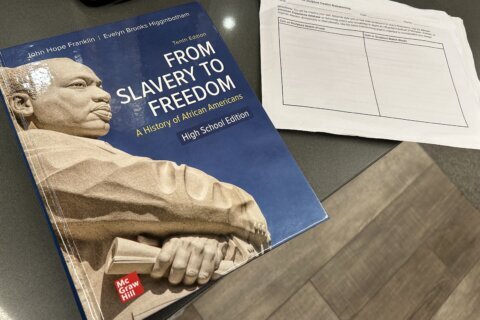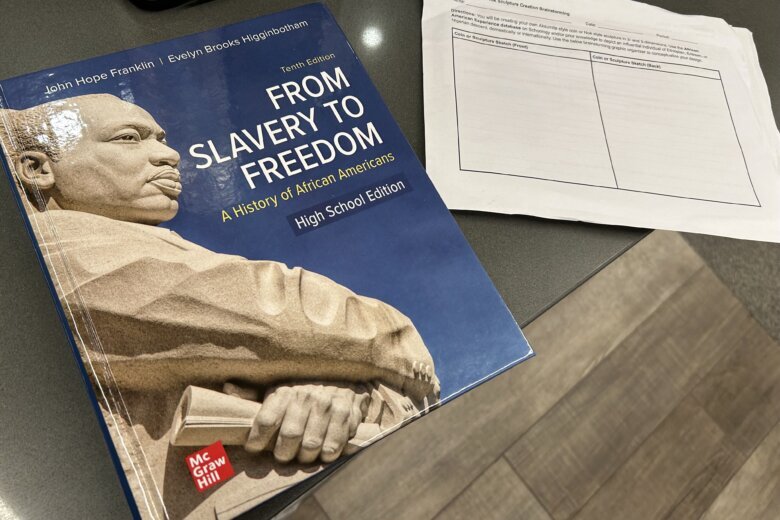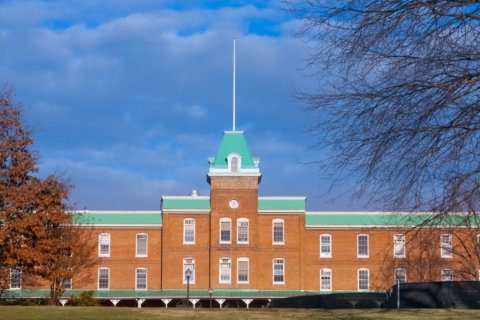This story is part 3 of a 3-part WTOP special report on how the new Advanced Placement African American Studies course is being taught at high schools in the D.C. area.

Students who take the Advanced Placement African American Studies course will learn about the Tulsa Race Massacre and former NFL quarterback Colin Kaepernick, but other topics, such as the Black Lives Matter movement, are optional, according to the College Board’s framework for the course.
The four units in the course — “Origins of the Black Diaspora,” “Freedom, Enslavement and Resistance,” “The Practice of Freedom” and “Movements and Debates” — haven’t changed since the pilot form of the course was launched. Most of the changes that have been made have come in the “Movements and Debates” section, according to Greg Carr, associate professor of Afro-American Studies at Howard University.
When the initial course framework came out, Carr said academic experts were frustrated that some topics, such as critical race theory, weren’t included.
Meanwhile, some politicians, like Florida Gov. Ron DeSantis, accused the course of trying to push a specific agenda. In Virginia, Gov. Glenn Youngkin ordered a review of the class to see if it violated his executive order pertaining to divisive concepts in schools. The state’s education department approved the class months later.
The course is being offered in hundreds of schools across the U.S. this year. Next school year, it’ll be available to all high schools, but school districts will have to decide where it will be offered.
- Read Part 1 of the series: ‘Giving a full story’: An inside look at how AP African American Studies is taught at a Va. high school
- Read Part 2 of the series: Why AP African American studies is increasing in popularity at this Montgomery Co. school
“I don’t think this course satisfies anyone completely,” Carr, who was invited to help design the course, said. “That’s because College Board has worked overtime to try to include as many voices as they could. As a result, I think that flexibility is really the key to this.”
Some of that flexibility, Carr said, comes in the form of a project in the class’s last unit. Students get to pick their own topic.
“It’s not called ‘intersectionality,’ but ‘interlocking systems of oppression’ is now included,” Carr said of the topics mentioned in the course. “There was an injection of Afrocentricity as a topic. There was economic growth and Black political organizations, community organizing.”
The framework includes additional material on topics such as the Tulsa Race Massacre and discriminatory housing practices, The Associated Press reported. Topics such as the Black Lives Matter movement and slavery reparations were removed from the AP exam, but the course will also feature writings on feminism.
A section of the class framework on African Americans and sports includes an item about why Kaepernick started kneeling during the national anthem after growing frustrations with police brutality.
Certain materials, such as a Frederick Douglass speech, were listed as required in the initial course framework but are now considered optional.
In many cases, Carr said the curriculum includes a “panorama of topics that should evoke the classroom,” which will allow teachers and students to engage with the material.
Michael Hunt, who taught the pilot course at Clarksburg High School in Montgomery County, Maryland, this year, is expecting the class to become more thematic.
“Right now, it’s chronological in a way, whereas we’re trying to hit a lot of information,” Hunt said. “If you look at the four units, each unit has maybe an excess of maybe 20 different sources that they want the students to actually study.”
Sean Miller, who is teaching the class at South County High School in Fairfax County, Virginia, this year, said all of the topics that the College Board is adding to the curriculum are significant.
“It’s holistic history,” Miller said. “Anything that’s added by College Board at this point or in the future, it just adds to the narrative. My goal is to allow students to explore information, to give them the best learning experience possible, and allow them to come to their own conclusions about what they’re learning and how it impacts society.”
Get breaking news and daily headlines delivered to your email inbox by signing up here.
© 2024 WTOP. All Rights Reserved. This website is not intended for users located within the European Economic Area.








